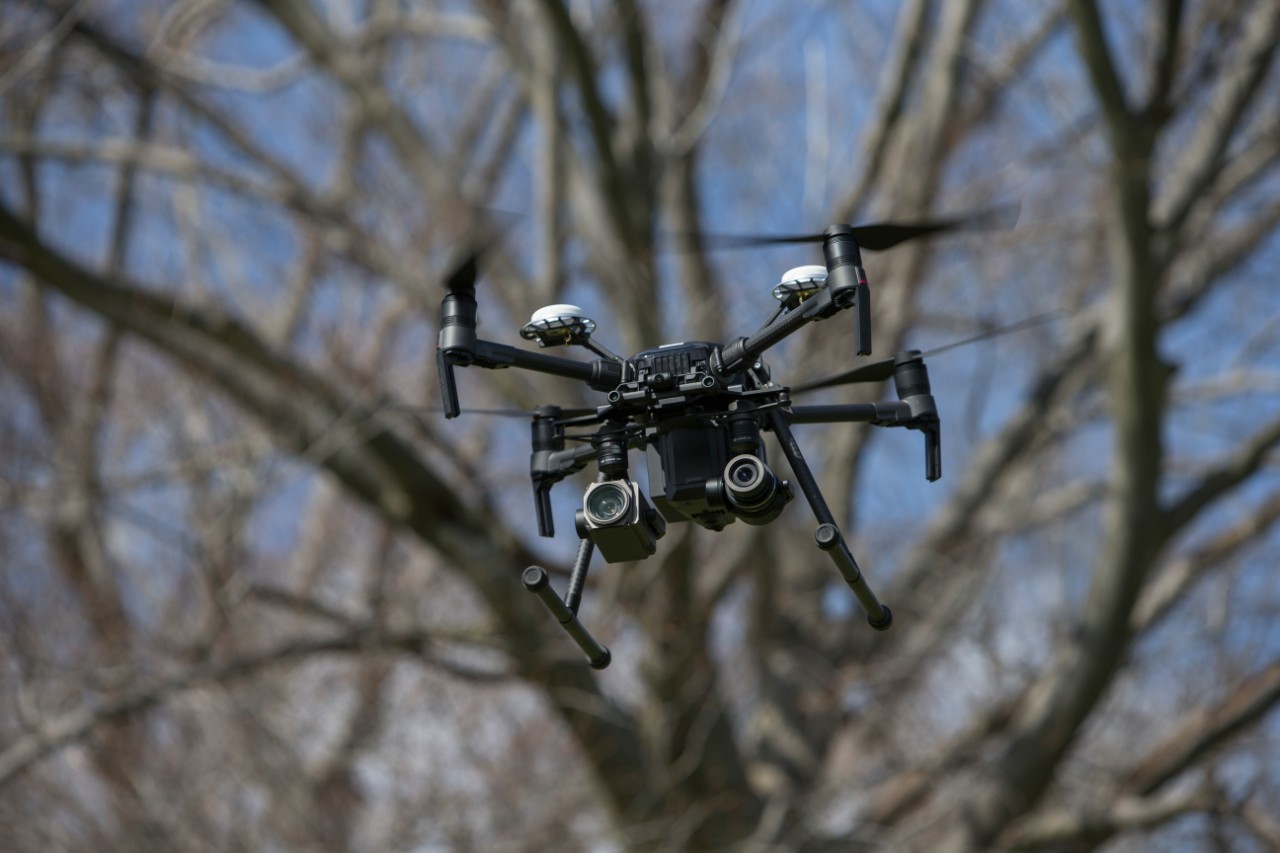
Apex: Air Force awards grants to UC, tech partner
UC will work with AI company VISIMO on unmanned aerial systems
The Academic Partnership Engagement Experiment or APEX highlighted a research partnership between the University of Cincinnati and a Pennsylvania company to develop new artificial intelligence algorithms using U.S. Air Force grants.
VISIMO, based in Pittsburgh, Pennsylvania, was the recipient of small business technology transfer grants totaling $2.2 million to develop new autonomous navigation systems for unmanned aerial vehicles and spherical robots called orbs.
Researchers in UC's Department of Aerospace Engineering and Engineering Mechanics will work with VISIMO to develop artificial intelligence algorithms for sense-and-avoid neural network architectures. This will allow the orbs or drones to perceive, learn, decide and act more efficiently and effectively on their own.
“We come up with novel approaches alongside subject matter experts from universities who inform the creation of our models,” Emma Lamberton, grants, and contracts manager at VISIMO, told APEX.
The Air Force has awarded more than $25 million in research and development grants to research institutions across the country. According to APEX, the latest phase of grants is designed to bridge the "valley of death," the tricky period when a new technology project isn't quite ready for the marketplace but is too narrow in scope to draw additional attention from other research institutions that might otherwise help it mature.
Featured pic at top: UC will work with Pennsylvania company VISIMO to develop new AI technology for drones and spherical robots called orbs. Photo/Andrew Higley/UC Marketing + Brand
Related Stories
Ohio could soon make breast cancer screenings more affordable
May 9, 2025
The University of Cincinnati Cancer Center's Ann Brown was featured in Local 12 and Cincinnati Enquirer reports on a bill introduced by Rep. Jean Schmidt in the Ohio legislature that seeks to eliminate out of pocket medical expenses such as copays and deductibles associated with supplemental breast cancer screenings.
Preparing students for artificial intelligence in education
May 8, 2025
Laurah Turner, PhD, associate dean for artificial intelligence and educational informatics at the University of Cincinnati's College of Medicine, recently joined the For The Love of EdTech podcast to discuss the usage of personalized learning and AI coaches to enhance educational experiences.
UC lab-on-a-chip devices take public health into home
May 8, 2025
University of Cincinnati engineers created a new device to help doctors diagnose depression and anxiety. The “lab-on-a-chip” device measures the stress hormone cortisol from a patient’s saliva. Knowing if a patient has elevated stress hormones can provide useful diagnostic information even if patients do not report feelings of anxiety, stress or depression in a standard mental health questionnaire.
